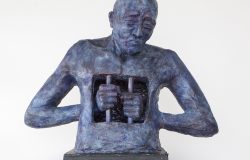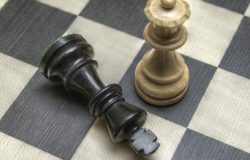A friend of mine has recently endured an arduous breakup. It’s a devastating story of major deceit and the misuse of kindness and love that left her a shadow of her former self. Her anticipation and joy at the burgeoning future she pictured in front of them as a couple was annihilated when she discovered some facts that changed everything about their relationship.
She was determined not to allow this to destroy her and immersed her life into her work until one day that stopped helping. There was this niggling issue that was taunting her whenever she was quiet for long enough, or by herself, or unable to sleep. One day she stopped and mentally asked the niggle, ‘What do you want? It was as if she had pulled at a loose thread on a woollen jumper and the whole thing began unravelling.
At a recent workshop I attended, the group was introduced to a narrative coaching technique that got them exploring how they positioned their current life situation in relation to their past and future. Everyone had a chance to complete the activity, using the technique to springboard themselves into possible ways of transitioning through their chosen concerns.
It was remarkable how effective the technique was at taking the sting out of those niggling issues and connecting people with a new way of looking at their situation. One person in the group, however, became overwhelmed with his story. The emotions were too raw and intense and he had to stop and leave the room. He could not re-enact his situation even in the safety of a simulation. The emotional pressure was too strong.
It brought home to me the significance self-continuity plays in our life story. Our ability to see ourselves as extending temporarily backwards into the past and forwards into the future gives us the opportunity to play with adaptive strategies to cope with current situations. Sometimes though, events take place that shatter our timelines. Our past makes no sense and our future feels impossible to accomplish because the present situation transports us out of our sense of self. We are called to form a new identity.
We are constantly editing our story to make sense of who we are in relation to our new experiences. In many instances, we go to great lengths to make new experiences fit with the memories we hold about ourselves. We carry out minimal adjustments to the constructed stories of the past and subtly tweak the imagined stories of the future so our present selves can operate from a consistent place of congruence. We tend to like a level of predictability about our lives.
Job loss, relationship breakups, acts of violence, illness, the birth of children, marriages, miscarriages, divorces and the death of a loved one – all these sorts of transitional moments and rites of passage quite simply mess with our story. They brutally force us to let go of the past or an imagined future and we mourn that loss of self. Grief is to a large extent about releasing the stories we hoped would be in our future and trying not to over-load our past stories with too heavy a load of regret. Grieving takes as long as is needed to get our self-continuity timeline reconstructed.
When we are going through personal transformation it’s like an emotional, spiritual and psychological eclipse takes place within us. The shadow of the new life story gradually inches its way across the images of our old story until, from a state of utter darkness, emerges a new slither of light as the new life story births itself into our being. Slowly we move into the light again.
Some people I have met simply cannot or will not fathom their way through to a new sense of self. They mercilessly hold on to an old story or the hope of a now impossible future. They cement themselves in a version of their story that simply diminishes the potential of what they could become. They are the archetypal stuck record playing the same story over, and over, and over again.
The integration of a new story into our lives involves a revivification of our personal myth. According to one of the doyens of narrative therapy, Dan McAdams, a personal myth is a life story that, usually in late adolescence or young adulthood, we construct in order to give meaning to our life and to make sense of the world. It’s how we find unity with our world and make peace with our place within it. It becomes the thing we are going stand for in life.
Each of us carries a personal myth within. We select and organise the events of our life into a version that is biased toward the myth we have running for ourselves. There are warrior myths, saviour myths, poet and princess myths. The mythical story we live by is up to us to choose or at the very least to recognise as a guiding force within us. This subterranean narrative network guides our choices, colours our interpretation of events and connects us to people and situations in unconscious and conscious ways. We are the heroes of our personal myths – but sometimes we forget that.
Life will come in and demand of us a new position of how we are to be in the world. Some event occurs that does not sit right with us – it niggles away at the story we want to hold on to in spite of conflicting messages. Through this conflict we discover that there are new facts about our lives emerging. We are pushed towards the threshold of a new version of our character.
We start to draw refreshed conclusions, derive novel themes, motifs and causal connections between events drawing meaningful insights and life lessons. We are building ourselves a new personal myth. Gradually we learn how to behave in a congruent manner with the new mythology that has taken root. We are moving into the next heroic version of ourselves.
Every good myth requires a hero, and that hero requires a quest. All the stories and fairy tales that nurtured us through our childhoods have this pattern of a hero: Alice in Wonderland, Harry Potter, Snow White, Jack and the Beanstalk, Aladdin, Goldilocks, King Arthur and his Knights, even Jesus of Nazareth and the Buddha. The type of quest varies but the outcome is always the same: psychological transformation and a greater appreciation for depth potentials that live within the hero.
Heartbroken as my friend was, she accepted the challenge to burn off her old story and emerge like a phoenix from the ashes of her past. She accepted that her heartbreak was what she needed to move into the deeper powers within her. Her newly emerging confidence makes her a more interesting, wiser and alluring person than her previous self. She’s transformed. The man at the workshop will eventually find the courage to stand in his present and face the future and release the memories that bind him to the past.
“One is never afraid of the unknown; one is afraid of the known coming to an end.”
Jiddu Krishnamurti
I think when we are stuck in our stories haunted by the past and fearful of how to be in the future, that’s the time to recall your hero. To become emboldened by that potential. The world is looking for heroes and the challenges we have to face is really the world calling us, begging us, to be heroic.
“There is nothing you can do that’s more important than being fulfilled. You become a sign, you become a signal, transparent to transcendence; in this way you find, live and become a realisation of your personal myth.”
Joseph Campbell






